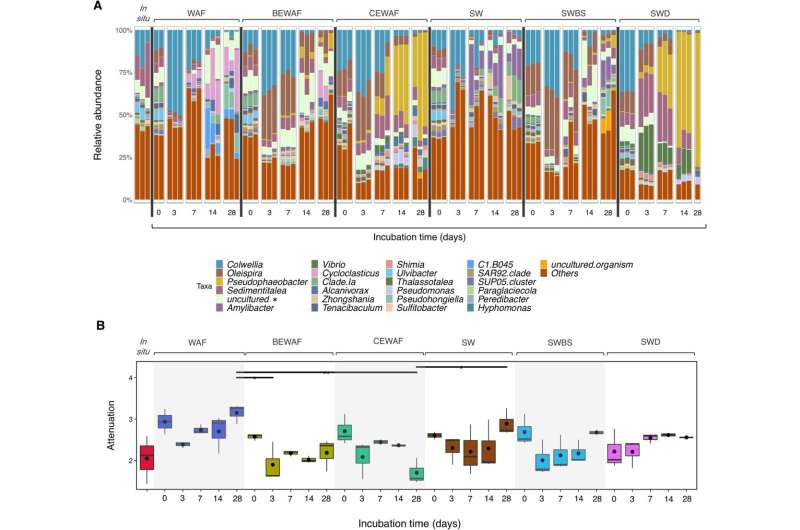Oil industry should invest in bio solutions for oil spills

Biological dispersants enhance the breakdown of the more toxic chemicals in crude oil better than synthetic chemical dispersants, a new study shows.
Scientists from Heriot-Watt tested how a synthetic and biological dispersant can enhance the breakdown of oil in the ocean.
The study was focused on the Faroe-Shetland Channel, a deepwater subarctic region with a lot of oil and gas activity.
The study shows that biological dispersants enhance the breakdown of oil pollutants in the event of a spill.
Dr. Tony Gutierrez said: "We compared the performance of Finasol, a globally stockpiled chemical dispersant for treating oil spills at sea, and rhamnolipids which are a natural biosurfactant.
Gutierrez has studied oil-degrading bacteria since before the Deepwater Horizon event in 2010, one of the largest spills on record.
"We wanted to find out how Finasol affected the response of oil-degrading bacteria and their breakdown of crude oil when compared to this natural biosurfactant.
"When Finasol was used, we saw less of the bacteria that are most important to break down aromatic hydrocarbons, which are the most toxic chemicals in crude oil.
"The biosurfactant did not suppress these oil-eating bacteria, so more of the aromatic hydrocarbons were degraded when it was used.
"Developing technology to cheaply mass-produce biosurfactants like rhamnolipids would give the oil industry a greener, eco-compatible alternative for combatting oil spills rather than using synthetic chemical dispersants."
This research was conducted in collaboration with the Water & Environment Group at the University of Glasgow, where Dr. Umer Zeeshan Ijaz is at the forefront of developing DNA based informatics to facilitate microbial community surveys in diverse environments.
Dr. Ijaz said: "With the recent technological advancements in microbial in situ omics data analytics, we are now better equipped to unravel how microbes interact with the environment and can harness their full potential in designing biodegradation and bioremediation strategies."
The research was published in Microbiome.
More information: Christina N. Nikolova et al, Response and oil degradation activities of a northeast Atlantic bacterial community to biogenic and synthetic surfactants, Microbiome (2021). DOI: 10.1186/s40168-021-01143-5
Provided by Heriot-Watt University





















